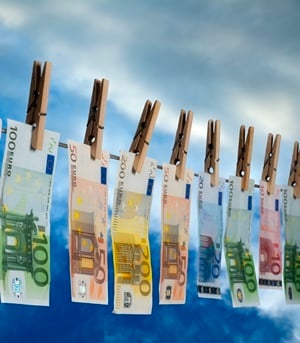Cape Town – Sometimes the "bad guys" are professionals sitting in offices in Sandton, says Michael Meadon, enterprise solutions and governance, risk management and compliance (GRC) market development lead at Thomson Reuters in South Africa.
"We have a kind of stereotype of who the bad guys are: a guy on a corner with a gun," Meadon said, at a Thomson Reuters roadshow at the Vineyard Hotel in Cape Town earlier in the week.
"Sure, those are bad guys, and we need to find them and send them to jail.
"But some of the bad guys are professionals, sitting in offices in Sandton, and helping [other] bad guys by creating shell companies, et cetera, and hid[ing] money from police," he added.
It is essential to hold all criminals to the same standard, Meadon argued.
"Some of the bad guys are bankers, lawyers and accountants, helping [other] bad guys. It is very important to hold these professionals just as responsible."
White collar crime was a major issue, he noted. And although he cautioned that one should be sceptical about statistics quoted for crimes like money laundering, he added it was worth noting that an estimated $3.7trn worth of money laundering takes place globally each year.
In Meadon's view, organised crime is a growing and global problem, which everyone should take seriously.
"Criminals laundering money depend on professional facilitators. Many of these professionals help criminals willingly," he said.
"One of the best ways to combat global crime, and all its ills, is to disrupt financial crime – to disrupt the criminal from using the financial system."
He emphasised the importance of "know[ing] your customer" in detail. Just having a copy of an ID and knowing an address is not enough, in his view.
According to Meadon, it is estimated that illegal wildlife trading (including rhino poaching) amounts to between $52bn and $157bn; illegal fishing between $15.5bn and $36.4bn; illegal mining $12bn to $48bn; human slavery and trafficking $150.2bn; crude oil theft $5.2 to $11.9bn; and drug trafficking $426bn upwards.
Counterfeiting money is regarded as the largest category, with $1.6trn to $2.2trn worth of corruption occurring each year, according to the International Monetary Fund (IMF).
"So, what can we do to stop this? Follow the money," Meadon said. "Cash is inconvenient for criminals to have. Financial crime is at the heart of environmental crime, bribery and corruption, human rights abuse, and 'conflict minerals'," he said.
"Professionals should, therefore, institute a way to find out who their customers are. Track and screen your customers. For example, is he using a supplier […] who is a slave in South East Asia?"
He said a key developments in artificial intelligence is natural language understanding: to track reams and reams of text, and understand trends in that text. Meadon believes this technology can be applied to identifying financial crime.
* Sign up to Fin24's top news in your inbox: SUBSCRIBE TO FIN24 NEWSLETTERFollow Fin24 on Twitter, Facebook, Google+ and Pinterest. 24.com encourages commentary submitted via MyNews24. Contributions of 200 words or more will be considered for publication.




















